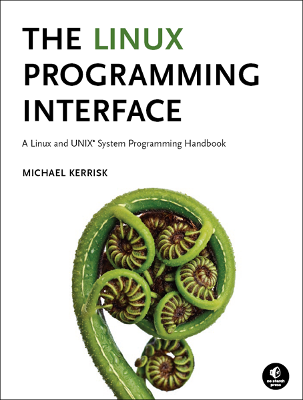Linux/UNIX IPC Programming course outline

- Course Introduction
- IPC: Introduction and Overview
- Categorizing IPC
- Choosing an IPC mechanism
- Fundamentals
- Error handling
- Notes on code examples
- Pipes and FIFOs
- Preamble: file descriptors and file descriptor duplication
- Creating and using pipes
- FIFOs
- Connecting filters with pipes
- Sockets: Introduction
- Socket types and domains
- Creating and binding a socket (socket() and bind())
- Overview of stream sockets
- listen() and pending connections
- accept() and connect()
- I/O on stream sockets
- Overview of datagram sockets
- I/O on datagram sockets
- Internet Domain Sockets
- Internet domain sockets
- Data-representation issues
- Presentation-format addresses
- Loopback and wildcard addresses
- Internet domain stream sockets example
- Internet Domain Sockets: Address Conversion
- Host addresses and port numbers
- Host and service conversion
- Internet domain sockets example with getaddrinfo()
- Sockets: Further Details
- Socket shutdown (shutdown())
- Socket options
- TCP TIME-WAIT state and
SO_REUSEADDR
- UNIX Domain Sockets
- UNIX domain stream sockets
- UNIX domain datagram sockets
- Further details of UNIX domain sockets
- UNIX Domain Sockets: Ancillary Data (*)
- Ancillary message types
- sendmsg(), recvmsg(), and struct msghdr
- struct msghdr in more detail
- Ancillary data and struct cmsghdr
- Example: passing a file descriptor over a socket
- Alternative I/O Models
- Nonblocking I/O
- Signal-driven I/O
- I/O multiplexing: poll()
- Event-loop programming
- Alternative I/O Models: epoll
- Problems with poll() and select()
- The epoll API
- Creating an epoll instance: epoll_create()
- Populating the interest list: epoll_ctl()
- epoll events
- Waiting for events: epoll_wait()
- Performance considerations
- Edge-triggered notification
- epoll API quirks
- eventfd
- Overview of eventfd
- eventfd operations
- Semaphore semantics for eventfd
- POSIX IPC
- POSIX Semaphores
- Named semaphores
- Semaphore operations
- Unnamed semaphores
- POSIX Shared Memory
- Overview
- Creating and opening shared memory objects
- Using shared memory objects
- Synchronizing access to shared memory
- POSIX Message Queues
- Opening, closing, and unlinking a message queue
- Message queue attributes
- Sending and receiving messages
- The mqueue filesystem
- Message queue limits and defaults
- Message notification (*)
- Message notification via a signal (*)
- Message notification via a thread (*)
- Other IPC methods (*)
- Pseudoterminals
- File locks
- Cross-memory attach
- Shared file mappings
(*) Topics marked with an asterisk will be covered subject to time
constraints.
Return to the course overview
